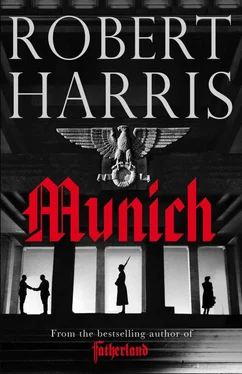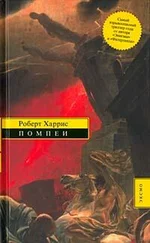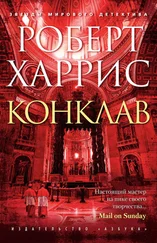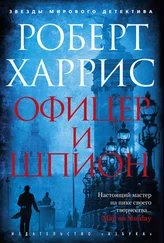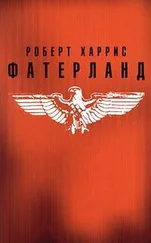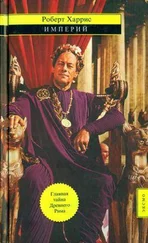The operator said, ‘Can I help you, Herr Legat?’
‘No. Thank you.’
He replaced the receiver.
As fast as he could he dressed. A fresh shirt. His Balliol tie. Once again he found himself kicking on his shoes as he walked. He slipped on his jacket and went back out into the passage. He realised his hair was wet. He plastered it down as best he could, nodded to the detective and knocked on the Prime Minister’s door.
‘Come!’
Chamberlain was with Wilson, Strang and Dunglass. He was wearing his spectacles, studying the two copies of the draft declaration. He glanced briefly at Legat. ‘Yes?’
Legat said, ‘Forgive me, Prime Minister, but I’d like to make a suggestion with regard to your visit to Hitler.’
‘What?’
‘That I should accompany you.’
‘No, that’s quite impossible. I thought I made it clear — no officials.’
‘I am not proposing myself as an official, sir, but as a translator. I’m the only one of us who speaks German. I can make sure that your words are being accurately reported to Hitler, and his to you.’
Chamberlain frowned. ‘I hardly think that’s necessary. Dr Schmidt is very professional.’
He returned to his perusal of the document and that might have been that, but Wilson spoke. ‘With respect, Prime Minister — remember what happened at Berchtesgaden, when Ribbentrop refused to give us a copy of Schmidt’s notes of your first long private conversation with Hitler? To this day we don’t have a full record. It would have been a great help to us if there had been a British translator present.’
Strang nodded in agreement. ‘That’s certainly true.’
Chamberlain could be peevish when he felt he was being pressured. ‘But it would threaten to change the whole tenor of the meeting! I want him to feel this is very much a personal conversation.’ He slipped the two copies of the declaration into his inside pocket. Wilson looked at Legat and shrugged slightly: he had tried. A noise came from beyond the window. Chamberlain’s brow creased in puzzlement. ‘What is that sound?’
Strang pulled back the curtain fractionally. ‘There is a huge crowd in the street, Prime Minister. They’re calling for you.’
‘Not again!’
Wilson said, ‘You should go out on to the balcony and wave to them.’
Chamberlain smiled. ‘I don’t think so.’
‘You must! Hugh, open the window, will you?’
Legat undid the catch. In the garden opposite the hotel and in both directions along the street the crowd was even greater than it had been on the previous day. As the spectators noticed the French windows opening they began to roar, and when Legat stood back to allow Chamberlain to step on to the small balcony the din became tremendous. Chamberlain bowed modestly three or four times in each direction, and waved. They started to chant his name.
In the hotel suite, the four men listened.
Strang said quietly, ‘Perhaps he’s right — perhaps this is the one moment when Hitler can be persuaded by sheer force of popular opinion to moderate his behaviour.’
‘You can’t accuse the PM of lacking imagination,’ said Wilson, ‘or courage. Even so, with great respect to Alec, I’d be happier if one of us was in there with him.’
After a couple of minutes, Chamberlain came back into the room. The adulation seemed to have energised him. His face glowed. His eyes were unnaturally bright. ‘How very humbling. You see, gentlemen, it is the same in every country — ordinary people the world over want nothing more than to live their lives in peace, to cherish their children and their families, and to enjoy the fruits that nature, art and science have to offer them. That is what I wish to say to Hitler.’ He brooded for a moment, then turned to Wilson. ‘Do you really think we can’t trust Schmidt?’
‘It’s not Schmidt who concerns me, Prime Minister. It’s Ribbentrop.’
Chamberlain thought it over. ‘Oh, very well,’ he said at last. ‘But be discreet,’ he warned Legat. ‘Don’t take notes — I only want you to intervene if my meaning is not being properly rendered. And make sure you keep out of his line of sight.’
Prinzregentenplatz had scarcely changed in the six years since Hartmann had last seen it. As they came up the hill and rounded the bend his eyes went immediately to the spot in the north-east corner where he had stood with Hugh and Leyna — on the pavement beneath a large white-stone apartment building with a high red-slate roof. A similar-sized crowd had gathered in the same place today, hoping for a glimpse of the Leader.
The Mercedes drew up outside number 16. A pair of SS sentries guarded the entrance. Seeing them, Hartmann realised he was still carrying his gun. He had grown so used to its snug weight, he kept forgetting he even had it. He ought to have dumped it during the night. If they had picked up Frau Winter he must surely be next. He wondered where they had arrested her — at the office, or in her apartment — and how they were treating her. As he climbed out of the car after Schmidt he could feel the sweat trickling beneath his shirt. The guards recognised Schmidt and waved him through and Hartmann slipped in after him. He was not even asked his name.
They passed another pair of SS men in the concierge’s office and climbed the communal staircase — stone at first, that became polished wood. The walls were tiled an institutional grey and green, as in a metro system. There were dim electric lamps but the light came mostly from the landing windows that looked out on to a small rear garden of fir and silver birch trees. They clumped up noisily, past apartments on the ground and first floors. It was said by the Propaganda Ministry that the Führer still had the same neighbours as he did before he became Chancellor: proof that at heart he remained a simple member of the Volk . Perhaps it was true, thought Hartmann, in which case what strange goings-on these people must have seen over the past few years, from the death of Hitler’s niece in 1931 to yesterday’s lunchtime visit by Mussolini. They continued to climb. He felt trapped, as if he were being drawn relentlessly by some dark magnetic force. He slowed his pace.
‘Come on,’ said Schmidt. ‘Keep up!’
On the second floor, nothing distinguished the apartment’s solid double door from the others. Schmidt knocked and they were admitted by an SS adjutant into a long, narrow vestibule. It stretched away on either side, parquet-floored, with rugs, paintings, sculptures. The atmosphere was silent, unhomely, unlived-in. The adjutant invited them to sit. ‘The Führer is not yet ready.’ He moved away.
Schmidt whispered confidingly, ‘He keeps late hours. Often he doesn’t emerge from his bedroom until noon.’
‘You mean we may have to sit here for another hour ?’
‘Not today. Chamberlain is due at eleven.’
Hartmann gave him a look of surprise. It was the first he knew that Hitler was meeting the British Prime Minister.
It took Chamberlain’s car several minutes to break free from the clutching hands of the crowd around the front of the hotel. The Prime Minister rode in the back with Dunglass, Legat sat up front next to the driver. Behind them was a second Mercedes carrying the Prime Minister’s two bodyguards. They made a partial circuit of the square and then sped off across Odeonsplatz into a district of elaborate royal palaces and grand public buildings that Legat vaguely remembered from 1932. He studied Chamberlain in the wing mirror, gazing rigidly ahead. People were shouting his name, waving at him. He sped on, oblivious. No longer the dry-as-dust administrator of popular legend, he had become a seer — a Messiah of Peace, robed in the drab costume of an elderly accountant.
Читать дальше
